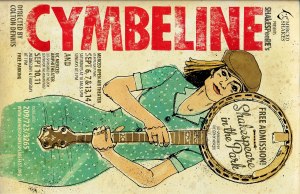by Fabiola Perez-Lua, Public Health Doctoral Student, UC Merced
I joined the COVID-19 and Latino Immigrants in Rural California (CLIMA) Study in the summer of 2020 and I was ready to leverage my background as a young, Latina student, born and raised in the Central Valley, to recruit Latino immigrants living in Tulare and Merced Counties for this important study. I had been away from the community for seven years, but people knew me, and I knew where to go to find them. I imagined myself posting CLIMA Study flyers in laundromats as children ran around behind me, or being greeted by the sweet smell of pan as I entered the panadería with a recruitment flyer for the señora in the apron behind the glass counter that housed colorful arrays of pan dulce. I made lists of the places I would go – Orosi, Lindsey, Exeter, Selma – the places where I had spent my weekends as a teenager working with my dad, sipping a warm cup of coffee, and conversing with the vendor next door. My dad, excited to have me back in town, would offer to visit farmworker friends and tell them about our study. Nostalgia and excitement filled me as I imagined the conversations in my head:
“Haven’t seen you around?”
“Just moved back… working on this study…”
“Solo dame el número para llamar, mija. Nosotros te ayudamos con tus entrevistas...” (“Just give me the number to call, sweetheart. We will help you with your interviews…”)
Then, Governor Newsom announced the stay-at-home order. Flea markets closed. Grocery stores flooded with panicked people. Breaking news headlined every channel on TV. Schools closed, one after another, like falling dominos. In-person contact suddenly became a near-death experience.
“Novel virus!”
“Six feet apart!”
“Wear a mask!”
“Work from home if you can!”
Work from home. Suddenly I had to work from my small apartment in Merced, where the only social interaction I was allowed to participate in was through a screen. It was in this virtual space where our CLIMA research team began to design a “Plan B Recruitment Plan.” It was a recruitment plan that did not involve posting flyers in laundromats, going to the panadería to advertise the study, stopping by vineyards, or recruiting old vendor-friends at the flea market. Plan B was outlined as follows:
- Step 1: Identify local and national organizations that serve your study population
Google search local and national immigrant-serving organizations. Create an Excel sheet that lists the names and information of these immigrant-serving organizations and any others you know of or have worked with in the past.
- Step 2: Contact organizations
Decorate your excel sheets with bright colors that keep track of who needs to be contacted (red), who has been contacted but hasn’t responded (yellow), and who has provided numbers of individuals who are interested in becoming participants (green). Make a total of three attempts to reach each organization: the first attempt should introduce the study and ask for their assistance with the recruitment process. The two follow-up emails (or calls) should be sent a few days apart as reminders. Don’t worry if organizations don’t get back to you – it’s a pandemic!
- Step 3: Contact individuals
Compile a second excel sheet that includes the names and numbers of individuals who are referred to you by the organizations who are assisting with the remote recruitment process. Decorate this sheet with colors indicating who needs to be contacted (red), who has been contacted but hasn’t responded (yellow), and who is scheduled for an interview (green).
- Step 4: Snowball sampling
Before the interview ends, ask the participant to refer you to other individuals they may know who may also be interested in participating in the study. They may distribute your name and number to friends and family.
The plan was simple enough. But the execution? That was a whole different story. Immigrant-serving organizations were busy functioning above capacity to support their communities during these difficult times. Reaching Latino immigrants by phone was challenging; folks worked long hours, many were taking care of children at home, and phone numbers changed often. On top of that, voicemails weren’t always set up and calls dropped in the middle of conversations. These were just a few of the issues we were experiencing with “remote recruitment.” I so badly wanted to drive down to Lindsay and stand outside of the Mercado Sol del Valle and talk to people. I wanted them to see my face, to trust that I was a young student, an aspiring researcher, born-and-raised in the community and interested in supporting Latino immigrant health. But instead, I was a “researcher at the university who will give you a call with information about the study.”
So, how did we adapt? With patience, outreach, and trust. We made peace with the fact that the recruitment process was going to be slower than expected. Rather than occupy our minds with worries about the project timeline, we used the time to reach out to community leaders in our region and develop trusting relationships. These new relationships led to the creation of a Community Advisory Board that brought diverse perspectives about the various issues that faced immigrants in the community as we conducted interviews and gathered qualitative data. Together, we produced a policy brief with our findings and disseminated it to a far wider audience than we could have reached alone. The need to adapt to a new research environment under COVID-19 highlighted the importance of community engagement and collaborative approaches to research that acknowledge and employ the expertise of community leaders. We are continuing to stay connected with, and expand, our new network of advocates to support Latino immigrant health. While it was unfortunate that my first year as a graduate student researcher experience did not unfold as I had imagined it, I have learned to adapt quickly, build community in the face of disaster, and reach rural Latino immigrants in innovative ways that will only enhance my ability to conduct Latino immigrant health research in the future.

